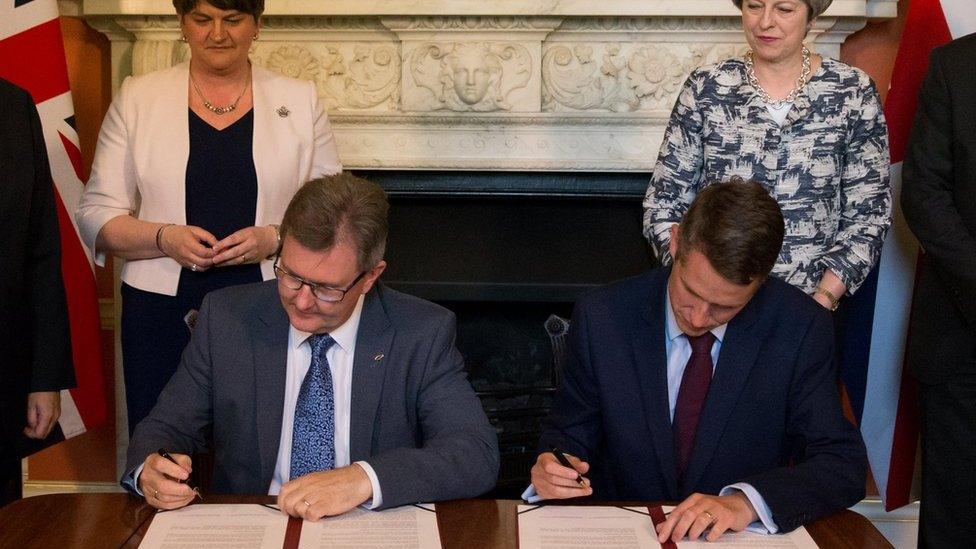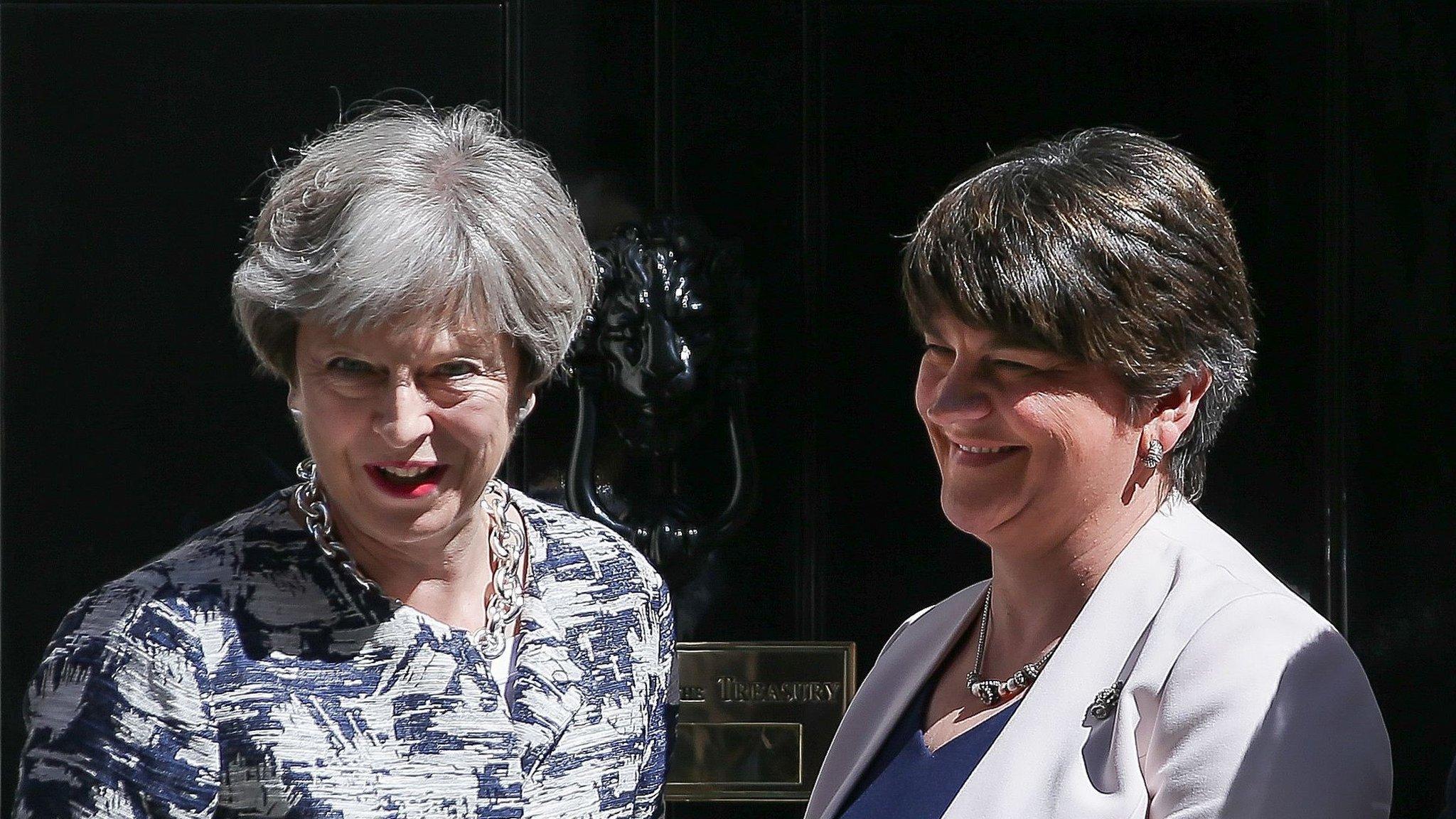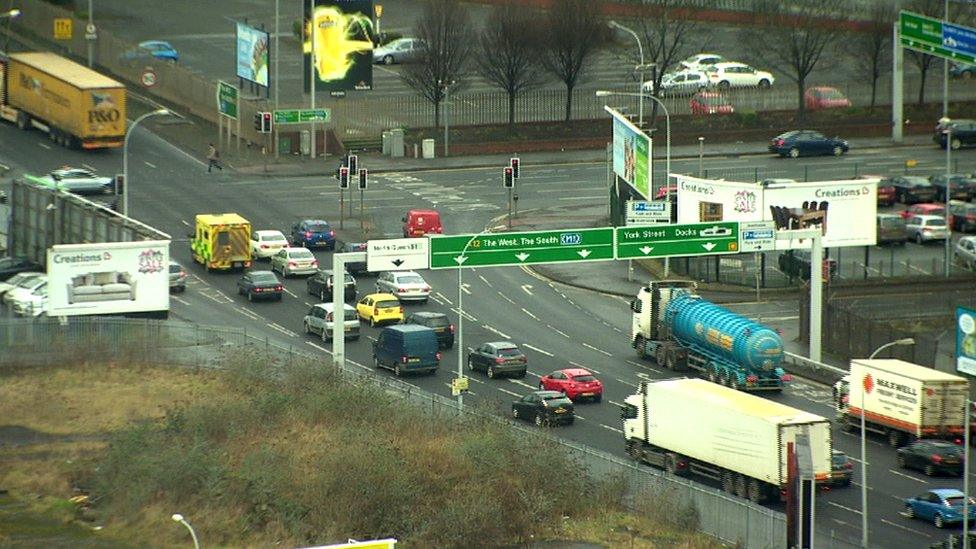£1bn Tory-DUP deal no 'silver bullet' for economy
- Published
- comments

DUP MP Sir Jeffrey Donaldson and Tory Chief Whip Gavin Williamson signed the deal in June
The £1bn DUP-Conservative deal for Northern Ireland "is not a silver bullet that will regenerate an under-performing economy", according to a report.
PwC says the £1bn windfall "will alleviate some immediate problems."
But the continued absence of a power-sharing government at Stormont puts strategies designed to improve the local economy at risk, it adds.
Its latest NI outlook report forecasts economic growth of 1% this year.
The supply and confidence arrangement, external between the two parties to prop up Theresa May's minority government was announced in June.
'Brexit jitters'
The £1bn extra spending commitment is "a welcome boost", said the report by financial services giant PwC.
But partner David Armstrong said issues like "productivity, reform of agri-food and scaling-up the private sector" remain "unresolved".
PwC said it was positive that the economy was growing, but that this growth was slowing due to falling consumer spending and "Brexit jitters".
Growth in Northern Ireland's economy will slip to 0.9% in 2018, it predicts - well behind the forecast UK growth of 1.4% and the lowest amongst the UK regions.
As part of the confidence and supply deal,, external the DUP agree to back the Conservatives in key votes - such as a Budget and a confidence motion - but are not tied into supporting them on other measures.
In return, as well as the obvious influence and prestige of being involved with the UK government, there will also be £1bn more spent on Northern Ireland over the next two years than had previously been planned.
They have also got agreement on a range of policy priorities - such as keeping the guarantee to increase state pensions by at least 2.5% a year, to maintain defence spending and to maintain agriculture spending in Northern Ireland at the same level for the rest of the current Parliament (which theoretically takes us to June 2022).
- Published26 June 2017

- Published26 June 2017
